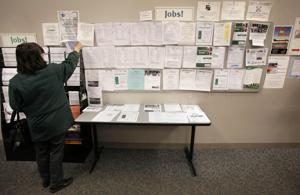Rhode Island task force endorses allocating some ARPA funds to replenish unemployment fund

(The Center Square) – A Rhode Island legislative panel delving into the range of potential benefactors from federal COVID-19 stimulus funds gave resounding support to one possibility at a recent hearing: replenishing the state’s unemployment insurance trust fund.
Unlike some states across the nation, Rhode Island’s UI trust was not depleted amid the drastic uptick in claims that flooded in a year and a half ago as shelter-in-place orders were handed down.
But the trust is in a fiscally diminished state, carrying a balance in the range of $180 million, down from the $500 million total that was in place pre-pandemic.
States facing low to no balances in their UI trust funds are required to pass that burden on to employers, who automatically pay into it. As the fund balance deteriorates, however, companies’ contributions typically increase.
Sharon Reynolds Ferland, fiscal adviser to the Rhode Island House of Representatives, went before a specially convened task force looking into potential ARPA appropriations at an Oct. 13 meeting.
Rhode Island is poised to receive $1.8 billion in ARPA funds over a 2-year span of time. The funds must be assigned to specific line items by the end of 2024 and spent by the end of 2026.
While there are a number of specific parameters in place on how and when ARPA funds can be used, Reynolds Ferland said state lawmakers also have wide latitude in structuring programs to link the funds with benefactors.
“You build the program from scratch,” Reynolds Ferland said. “There is leeway. There’s no federal guidance that says it must be one-size-fits-all. It’s not as tightly scripted as you might think.”
In her presentation at the recent hearing, Reynolds Ferland zeroed in on two of four specific buckets for ARPA funding.
One referenced responses to the public health emergency and its economic impacts; the other touched on the ability to potentially offer premium pay to workers who provided essential services at the height of the pandemic.
State Rep. Carol Hagan McEntee, D-South Kingstown, said she believed employers should not be penalized for hikes in UI fees since the circumstances surrounding the pandemic are no fault of their own.
“Maybe we should consider putting money in that pot so that small businesses aren’t hit by that fee,” she said.
State Rep. George Nardone, R-Coventry, offered similar sentiments during the 75-minute task force discussion.
“It’s just common sense,” Nardone said. “That’s something I’d advocate for, right out of the gate.”
From an equitable standpoint, state Rep. Teresa Tanzi, D-Narragansett, said she viewed the UI replenishment as a way to enact a policy that is broad reaching.
“We’re not choosing the winners and losers,” Tanzi said. “This is something that could be equally distributed.”
Some of the other potential specific uses Reynolds Ferland touched on at the task force meeting included programs to combat food and housing insecurity, job training programs and grants to help the heavily battered tourism industry.
Reynolds Ferland plans to continue discussing some of the other potential uses of ARPA funds at upcoming task force meetings, including possible allocations toward water, sewer and broadband infrastructure.
State Rep. Carlos Tobon, D-Pawtucket, said his goal is to work thoughtfully and methodically through the list of potential uses with public input being a part of the process.
“Let’s not be in a rush to spend it,” said Tobon, who chairs the task force. “Let’s be prudent. This is a rare opportunity.”
Disclaimer: This content is distributed by The Center Square
